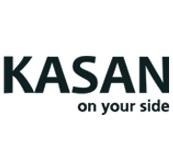참고자료 소개 – 블로그 링크 Key Trends from a Summer of Non-compete Reform
Prohibition Against Non-Competes for Low-Wage Workers
The most common area of reform has been the ban against employers entering into non-compete agreements with “low-wage” employees. Maryland, Maine, New Hampshire, and Rhode Island all now prohibit employers from entering non-compete agreements with “low-wage” employees, though the definition of “low wage” varies by state.
Maine’s L.D. 733 sets forth the broadest definition of “low-wage” setting the threshold hold at employees earning at or below 400% of the federal poverty level ($49,960 in 2019).
Rhode Island and Maryland set their compensation threshold several thousand dollars lower, at employees earning at or below 250% of the federal poverty level ($31,225 in 2019)and employees earning at or below $31,200 per year or $15perhour, respectively.
Similar to Rhode Island and Maryland, New Hampshire’s S.B. 197 defines “low-wage” employees as those earning an hourly rate less than or equal to 200% of the federal minimum wage(i.e., $14.50per hour or $30,160 annually).
Enhanced Notice Requirements
Another common feature among the myriad of recently enacted non-compete laws is the imposition of new notice requirements before a non-compete restriction can be enforced against an employee.
For example, Maine’s L.D. 733 requires employers seeking to enforce a non-compete agreement to (a) disclose the terms of the non-compete agreement prior to an offer of employment, and (b) provide a copy of the non-compete agreement at least three (3) business days before the employee is required to sign the agreement. Similarly, New Hampshire’s S.B. 197 mandates that employers provide a copy of the non-compete agreement to any potential employee before the employee accepts an offer of employment. A non-compete agreement that has not been disclosed to an employee prior to his or her acceptance of employment is unenforceable under the new New Hampshire law.







